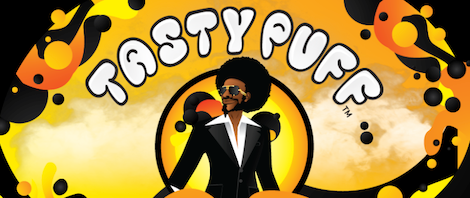For years, the cannabis community has circulated an urban legend claiming that daily marijuana use decreases or even eliminates dreaming. Could chronic cannabis consumption cause a dramatic dip in dreaming during sleep? Or is this just another manifestation of misinformation resulting from nearly a century of pot prohibition in the United States?
A range of peer-reviewed research studies has investigated the subject of cannabis (and cannabinoids) and sleep—sometimes delving into the realm of dream generation and REM (Rapid Eye Movement) sleep. REM is the sleep stage during which most dreaming occurs.
A 2004 human trial study entitled "Effect of D-9-Tetrahydrocannabinol and Cannabidiol on Nocturnal Sleep and Early-Morning Behavior in Young Adults" that was published in the Journal of Clinical Psychopharmacology explored "the effects of cannabis extracts on nocturnal sleep, early morning performance, memory, and sleepiness."
The double-blind and placebo-controlled study (neither the participants nor the researchers knew who was receiving CBD and THC and who was given a placebo) observed eight adults (four male, four female). Performance, sleep latency, and subjective assessments of sleepiness and mood were measured.
The scientific investigation found that administration of THC resulted in decreased REM sleep. Decreased REM time would, in theory at least, decrease dreaming.
An arguably biased 2008 study entitled "Effect of Illicit Recreational Drugs Upon Sleep" that was published in the journal Sleep Medicine Reviews explored the overall effects of several drugs, including cannabis, on human sleep.
The researchers echoed previous studies by reporting that "smoked marijuana and oral Delta-9-tetrahydrocannabinol (THC) reduce REM sleep." It also reported that "acute administration" of cannabis may help consumers to fall asleep and may increase deep sleep.
A 2021 study entitled "Are Sweet Dreams Made of These? Understanding the Relationship Between Sleep and Cannabis Use" that was published in the journal Cannabis & Cannabinoid Research explored the effects of cannabis on sleep.
The research identified 31 previous studies that investigated the association between cannabis use and sleep. "The findings from these studies were mixed," reported the scientists. They found cannabis use to be associated "with a variety of impacts on sleep ranging from beneficial effects, such as reduced sleep-onset latency, to negative outcomes, such as reduced sleep duration and suppressed rapid eye movement oscillations."
Additional research and clinical trials are necessary to better understand the effects of cannabis on sleep and, more specifically, the dreaming process. The takeaway for students is that cannabis consumption, especially directly before sleep or daily or in relatively large volumes, may decrease REM sleep.
Because REM sleep is where most dreaming occurs, less REM may equal fewer dreams. The lack of definitive research data on this topic makes achieving solid conclusions difficult.
Research points toward a mechanism in which cannabis consumption increases one's time in deep sleep (the most restorative stage of sleep). Because more time is spent in deep sleep, there is less time for REM and, thus, fewer dreams.
Read More, Learn More: Higher Learning LV




















